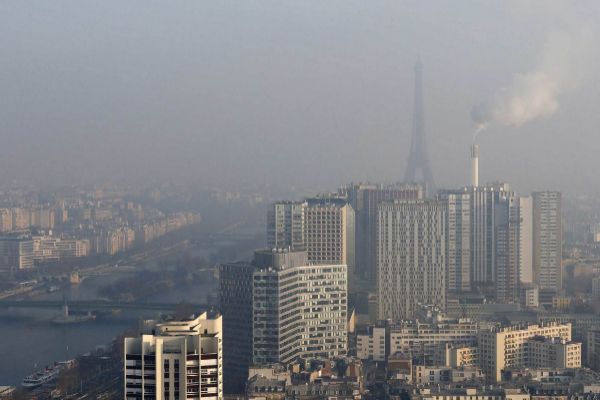- Letter.More than 11,000 scientists declare the "climate emergency"
- Analysis: The Paris Agreement is insufficient to curb climate change
Limiting global warming below 1.5º would reduce the impacts of climate change by 70%. However, there are more and more experts who point out that this goal set in the Paris Agreement - despite being affordable - cannot be achieved without greater ambition by the major world economies. This Monday, the Brown to Green report was published, which analyzes the climate policies and actions of the G20 countries; The document warns that none of the members are currently on track to meet the necessary requirements to achieve that goal.
Prepared by the NGO Climate Transparency, it indicates that the current trend leads us to an increase of 3 ° above pre-industrial levels by the end of this century. If that figure is reached, the impacts of the climate will be more severe and will increase the risk of the planet going beyond "critical inflection points", after which it will experience deep and irreversible systemic changes. That includes a catastrophic increase in sea level, as well as droughts and floods that can threaten the livelihoods of many populations, such as access to drinking water.
The authors stress that 2020 will be a key year in climate action . Next year, all countries are expected to present revised national objectives and plans, an issue that will be at the center of the Madrid COP25 negotiations. "It is very relevant because it shows governments how they could improve their emission targets a few weeks before they meet in Madrid to review the Paris Agreement," explains Lena Donat, a researcher at the Germanwatch NGO and co-author of the report.
Limit droughts and heat waves
Maintaining the global increase in its minimum levels would contribute to reducing the average duration of droughts by 68% since the number of annual days above 35 ° C is 30 instead of 50. It would also limit the disturbances that are being experienced. in agriculture, with growing cycles of growing crops, as well as reducing rainfall and heat waves. "Next year is going to be very important: countries know that they must increase their objectives because the world is on the way to a temperature of 2.7 or 3.5 ° higher," explains other authors, Enrique Maurtua Konstantinidis, head of The Biosphere Foundation.
The 20 main economies of the planet are responsible for 80% of Greenhouse Gas (GHG) emissions. In 2018, GHG emissions increased in all sectors of these countries, especially in construction. In addition, the report considers that the current climate objectives presented by their governments for the year 2030 are too conservative. " Transportation and construction are two of the most problematic sectors ," says Dunat. "Although many governments have created policies to make buildings more efficient, they are being implemented correctly. In transport, which accounts for 20% of emissions, progress is being made on issues such as electric vehicles but transportation of vehicles is being ignored. goods".
Recommendations for the EU
In the case of the European Union, although emissions are decreasing in percentage, the report reflects that the increase in consumption and economic growth make current efforts fall short. The authors consider, therefore, that the objective of reducing emissions below "40% compared to 1990 levels" is not enough to reach the goal of 1.5 °. "Economic growth leads to an increase in demand, and with it an increase in emissions," adds Donat. "We see renewable energy growing, but also fossil fuels."
However, the EU has adopted a package of measures with which it intends to reach a more ambitious figure than the one signed in Paris, which would be consistent with the 1.5º objective. These measures would result in a reduction of 58%, which the authors believe could be taken up to 62% with some modifications. "The energy transition has to be fair," Maurtua Konstantinidis concedes, "but it is clear that the countries that lead it will be in a better position to adapt to the new reality."
Specifically, they recommend three measures: adopt a zero emission target by 2050 and increase the reduction commitments by 2030; that 100% of cars sold in community territory do not emit CO2 and a moratorium to stop the expansion of gas infrastructure (gas pipelines and ports of liquefied natural gas).
The report, which includes 80 economic and environmental indicators , is one of the most comprehensive reviews of the climate action of the 20 major world economies . Analyze your strengths and weaknesses in your efforts to reduce emissions, adapt to the effects of the climate and achieve greener taxation. It has been prepared based on data obtained in the latest analyzes published by the OECD and the World Bank.
According to the criteria of The Trust Project
Know more- Science and Health
- science
Environment This is how Spain is transforming climate change
ScienceChange of October October 2019: this weekend comes winter time
ScienceChange Time 2019: When Winter Time Enters Spain

